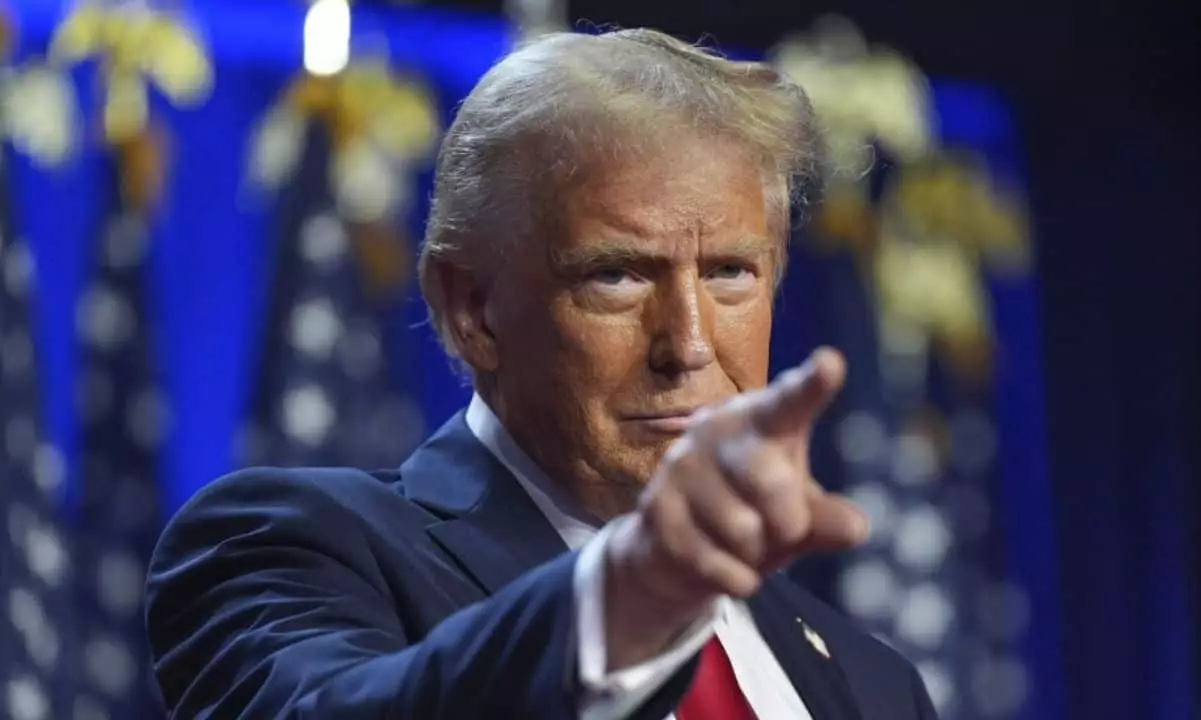On March 23rd, a staggering incident occurred in the world of cryptocurrency—a whale investor, with an audacious investment strategy, suffered a catastrophic $207,000 loss when trading the Official Trump (TRUMP) meme coin. This loss is not just a statistic; it represents the precarious balance between high-risk investment and the potential for windfall gains inherent in cryptocurrency trading. Just months prior, this same whale had transformed an investment of 1.09 million USDC into a phenomenal $108 million through the acquisition of 5.97 million TRUMP tokens. Such volatility raises profound questions about the sustainability of meme coins and the unregulated frenzy that often surrounds them.
Timing and Trends: The Role of Endorsements
The catalyst for the whale’s ill-fated trade was none other than an endorsement from former President Donald Trump himself. It came via a post on TruthSocial, in which he proclaimed, “I LOVE $TRUMP — SO COOL!!! The Greatest of them all!!!!!!!!!!!!!!!!” This kind of celebrity endorsement can send shockwaves through the cryptocurrency market, often leading to unpredictable price surges as both seasoned investors and newcomers rush to buy into the hype. Just hours after Trump’s announcement, the token’s price skyrocketed to over $12.25. However, this rapid ascent was followed by an equally swift descent, demonstrating the inherent volatility and speculative nature of meme coins.
The Political and Regulatory Landscape
This incident is further complicated by the political repercussions surrounding the endorsement of meme coins by public figures. The political affiliation of Trump and the controversies surrounding such endorsements have prompted significant legislative backlash. Representative Sam Liccardo has proposed the MEME Act, designed to inhibit senior government officials from promoting meme coins. This is a crucial step towards recognizing the ethical implications of using political capital to bolster digital currency salability. It’s an acknowledgment that personages in power can exploit their influence to promote assets that, by nature, promise little genuine value.
SEC’s Stance on Memes as Investments
The Securities and Exchange Commission (SEC) has categorized meme coins like TRUMP as non-securities—a decision that starkly delineates them from more traditional investment vehicles. The SEC views these assets as collectibles, driven by cultural phenomena rather than legitimate market machinations. This regulatory gap illustrates a broader dilemma. While it fosters an environment for creativity and community-building—traits often heralded in the crypto space—it simultaneously leaves investors, especially newcomers, vulnerable to economic pitfalls like the one experienced by the whale.
The Allure of Speculative Investments
Investors are drawn into the speculative arena of meme coins, hoping to replicate the extraordinary returns seen by early adopters. However, as seen in the TRUMP token saga, the risks involved cannot be overstated. The extreme fluctuations in value coupled with the lack of a robust regulatory framework present a hazardous landscape for those lacking experience. As more public figures leverage their visibility to endorse such tokens, the line between capitalizing on popularity and engaging in manipulative financial behavior continues to blur, raising the importance of risk assessment and informed decision-making in investment strategies.
















Leave a Reply